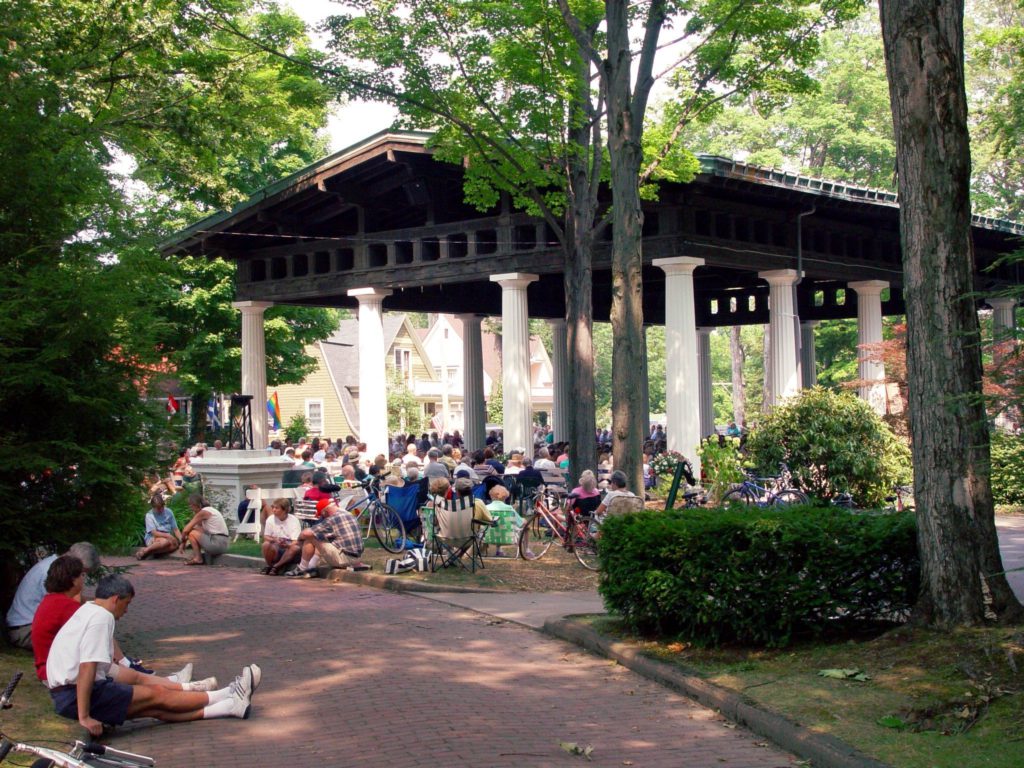Sep 1, 2022
Salman Rushdie Tragedy at Modern Day Chautauqua
On August 12, novelist Salman Rushdie was about to speak at a lecture for the Chautauqua Institution in Chautauqua, New York, when an attempt on his life was made which left him in critically serious condition.
Thankfully, Rushdie is recovering after the shocking attack. Unfortunately, the attack has also damaged the beautiful tranquility of the Chautauqua Institution, the birthplace of the American speaking industry dating back to 1874. This Institution is a nonprofit education center and summer resort where people of all ages come to participate in lectures, performing arts, and religious programs.
Established in 1874, what started as a summer school for Sunday school teachers in Upstate New York, transformed into a location where adult education of all kinds was provided. Across the nation, from the late 1800’s to the Depression, hundreds of Chautauquas sprang up in rural communities throughout the midwest and eastern United States. The Chautauqua Institution’s ultimate goal was to bring a “college education” to those in the lower, middle, and working classes. By the end of the nineteenth century, the Chautauqua Movement was known as the epicenter for powerful moral and intellectual self-development.
These community centered Chautauquas helped educate people on new worldly ideas and were most common in towns where secondary education was scarce. What was most powerful about these organized lectures is that they gave uneducated women the opportunity to learn about college topics and issues of public concern, where they otherwise would not be given the chance to improve their knowledge and intellect.
One of the most famous of speakers who spoke at the Chautauqua Institution was Franklin D. Roosevelt, where he gave the well known speech “I Hate War.” Roosevelt spoke of America’s lessons learned in World War I and the part the Navy played in our success. Other well known speakers of the Institution included William Jennings Bryan, Alf Landon, and “Fighting Bob” La Follette Sr.
The birth of speaker bureaus began in 1868 with the Redpath Lyceum Bureau. The first Chautauqua circuits featured such luminaries as Mark Twain, Ralph Waldo Emerson, and Susan B. Anthony. The inception of these circuits created the foundation of the modern day speakers bureau industry, representing preeminent thought leaders, celebrities, and transformative ideas. BigSpeak is so grateful for the impact that the Chautauqua movement had on giving the world the opportunity for powerful widespread learning and personal growth.
